Preparing for fertility: how a healthy lifestyle can improve your chances
Introduction
If you’re planning to start fertility treatment or even if you’re simply trying to optimize your chances of conceiving naturally, your daily choices matter. A healthy lifestyle can support hormone balance, ovulation, sperm quality, and overall reproductive well-being. While no single change guarantees pregnancy, small, sustained steps can improve your reproductive health for both prospective mothers and partners. This article outlines practical, evidence-informed strategies you can begin before treatment or early in the process.
Understanding fertility and why lifestyle matters
Fertility is influenced by a complex mix of hormones, anatomy, age, and overall health. Body weight, nutrition, sleep, stress, and exposure to toxins can affect ovulation in women and sperm production in men. Preconception health is not about perfection; it’s about reducing risks and optimizing conditions for a healthy pregnancy. At The Clinics Nabda Unit we will walk you through useful tips that can improve your overall health.
Key lifestyle factors and practical steps
1- Aim for a healthy weight: Being underweight or overweight can disrupt ovulation and reduce fertility. In men, extreme weight issues can affect sperm quality.
Practical steps:
Women: If you’re overweight or have irregular periods, modest weight loss (5–10% of body weight) can improve ovulatory function in some cases. If you are underweight, aim for gradual weight gain to restore regular menstrual cycles.
Men: Maintain a healthy weight; both excess and very low weight can impact sperm quality.
Seek personalized guidance from a clinician or registered dietitian if weight is a concern or if you have a history of eating disorders.
2- Nutrition: A healthy diet in preparation for fertility treatment can improve both the chance of success and overall well-being. Focusing on balanced meals supports hormones, energy, and the quality of eggs and sperm. Key steps include achieving a healthy weight if needed, staying hydrated, and prioritizing fruits, vegetables, whole grains, lean proteins, and healthy fats.
3- Exercise and physical activity: Regular, moderate exercise supports weight and stress management, but excessive exercise can suppress ovulation in some individuals.
Practical steps:
Aim for a mix of aerobic activity, strength training, and flexibility work most days of the week.
Listen to your body: If your period stops (amenorrhea), you may be exercising too much or not eating enough, talk to a clinician.
For men, balanced exercise supports general health and can help with mood and energy.
Quick tip: Aiming for 150–300 minutes of moderate-intensity activity weekly plus two or more strength sessions is a common target for overall health.
4- Sleep and Stress Management
What to know: Chronic sleep disruption and high stress can affect hormones and reproductive function.
Practical steps:
Sleep: Target 7–9 hours per night. Maintain a regular sleep schedule, even on weekends.
Stress reduction: Techniques such as mindfulness, meditation, yoga, deep breathing, or counseling can help. Consider a pregnancy-focused stress management plan if you’ve experienced anxiety or depression.
Social support: Building a support network can improve coping and well-being.
Quick tip: Create a wind-down routine and limit screen time before bed.
5- Smoking and Caffeine: Smoking harms fertility and fetal health.
Practical steps:
Smoking: Seek help to quit and avoid exposure to secondhand smoke for both partners.
Caffeine: If you consume caffeine, keep it modest (often advised under 200–300 mg daily, but consult your provider).
Quick tip: If quitting feels challenging, ask for resources such as counseling or smoking cessation programs.
6- Environmental and chemical exposures: Some environmental toxins, such as certain pesticides, solvents, phthalates, and heavy metals, may affect fertility.
Practical steps:
Reduce exposure where possible: use safer household products, avoid unnecessary chemical cleaners, and eat a varied, mostly organic diet if feasible.
Take precautions at work: If you’re exposed to chemicals, discuss protective measures with your occupational health provider.
Quick tip: Simple changes (such as avoiding heating plastics, using glass or stainless steel containers, and choosing fragrance-free products) can reduce exposure.
7- Sexual health and timing: Natural fertility cycles are influenced by timing around ovulation.
Practical steps:
Track cycles: Basic methods include monitoring cycle length, cervical mucus, and basal body temperature. An ovulation predictor kit can help if cycles are irregular.
Timing activities: For natural conception, aim for regular intercourse during the fertile window (roughly days 10–14 of a typical 28-day cycle, adjusted for longer or shorter cycles).
Medical guidance: If you have known conditions (e.g., endometriosis, thyroid issues, and polycystic ovaries) that affect fertility, address them with a clinician before treatment.
Note: If you’re undergoing fertility treatment, your clinician will guide you on timing and protocols.
Putting it into action: a practical plan before treatment
Start with a 6–12 week preconception window (or longer if needed) to implement changes and gauge progress.
Create a simple, sustainable plan:
- Nutrition: Add a daily multivitamin with folic acid, choose whole foods, and reduce ultra-processed items.
- Activity: Establish a routine that includes 150–300 minutes of moderate activity weekly plus two strength sessions.
- Sleep: Set a consistent bedtime and wake time; aim for 7–9 hours.
- Substances: Quit smoking if applicable; limit alcohol and caffeine; review medications with a clinician.
- Stress: Practice a daily stress-reduction technique (even 10 minutes of meditation or deep breathing).
- Environment: Reduce exposure to known toxins; use gentler household products where possible.
- Track progress: Keep a simple diary of weight (if appropriate), cycle information, sleep, exercise, and mood. This helps you and your clinician tailor plans.
Finally, a proactive approach to health before fertility treatment can improve your overall well-being and create a more favorable environment for conception and pregnancy. Small, consistent changes can collectively strengthen reproductive health for both partners. The Nabda team at The Clinics is always ready to tailor a solution for your unique situation, and remember that preparation is about optimizing, not guaranteeing, results.



